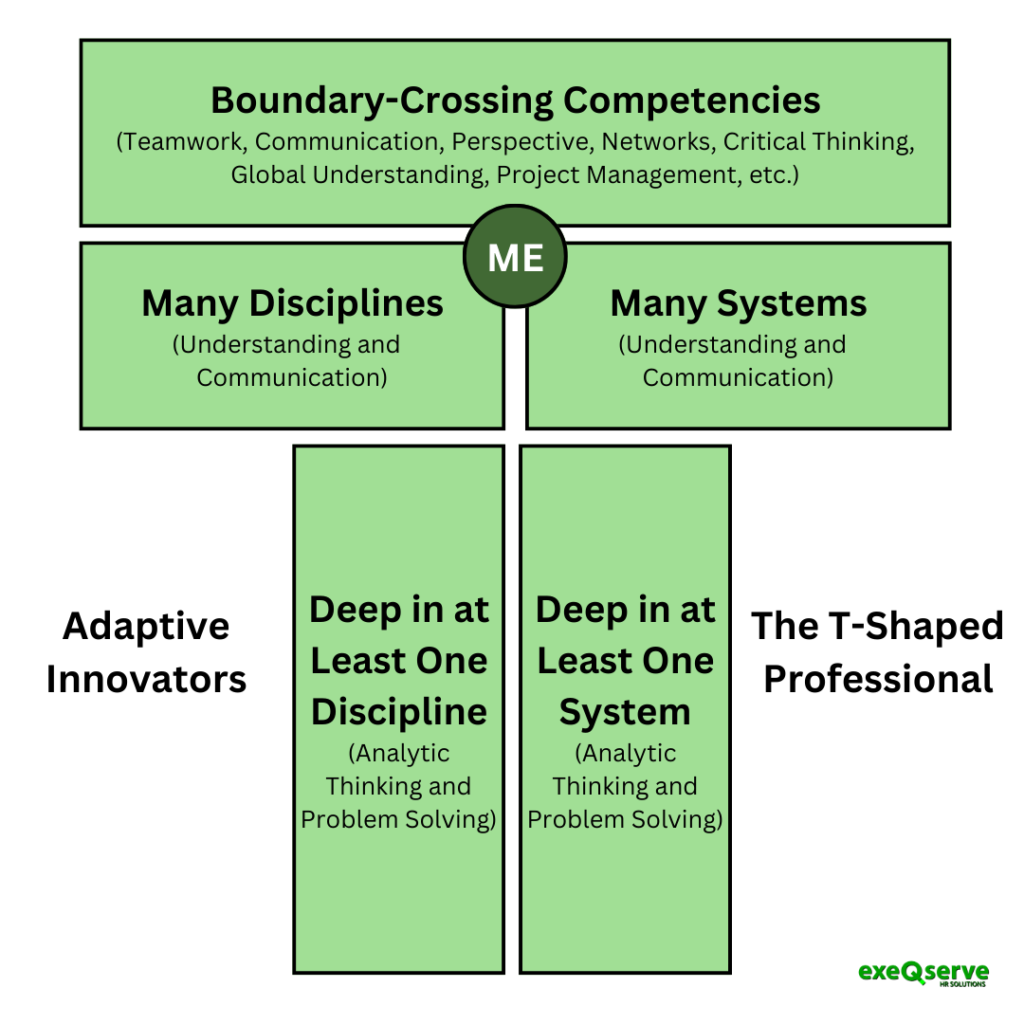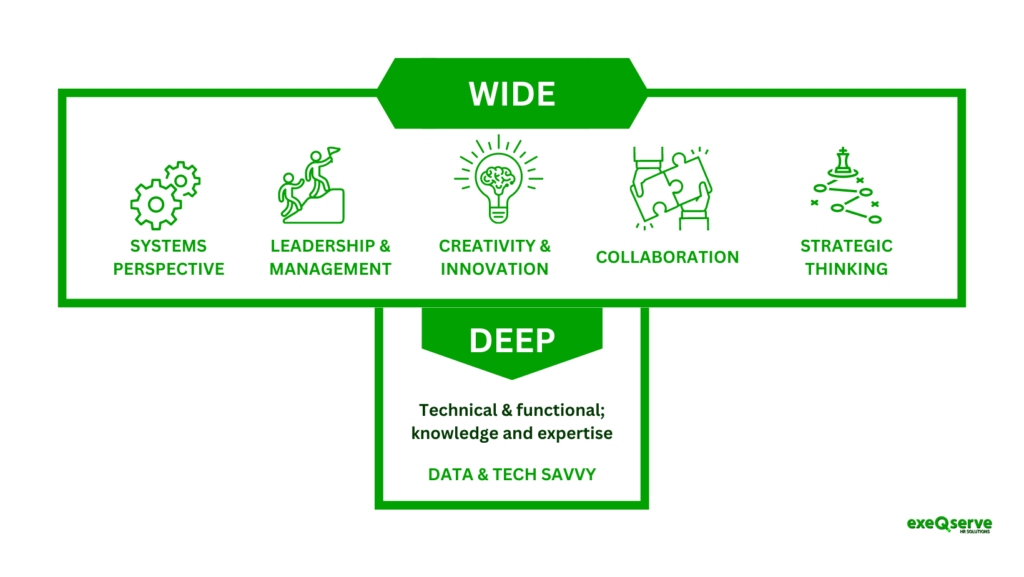I have been noticing that many managers and supervisors lean too much on their technical skills and experience that they fail to appreciate the need to develop other skills necessary for effective leadership and management. Non-T=Shaped Managers struggle with coordination, collaboration, and delegation, and fail to increase the value they create for their organization. If this sounds familiar in your case, time to rethink your approach.
There is a growing demand for managers who have both deep expertise in a given subject and a broad variety of talents. This is where the T-shaped professional notion comes into play. Individuals who are “T-shaped” have a strong foundation in one area (the vertical stroke of the “T”) while simultaneously possessing a broad variety of talents across other domains (the horizontal stroke of the “T”). In this post, we will look at what it means to be a T-shaped professional, the benefits it provides, the penalties of not developing a T-shaped profile, and the practical steps to becoming one.
The Power of T-Shaped Professionals:
 T-shaped professionals can adapt and participate in a variety of scenarios. They have a broad understanding of various subjects, allowing them to approach problems from various angles. This agility is priceless in today’s fast-paced workplace.
T-shaped professionals can adapt and participate in a variety of scenarios. They have a broad understanding of various subjects, allowing them to approach problems from various angles. This agility is priceless in today’s fast-paced workplace.- T-shaped experts excel in interdisciplinary collaboration and teamwork. Their extensive knowledge base allows them to efficiently communicate with specialists from many fields and establish common ground. This encourages creativity, problem-solving, and effective teamwork.
- Professionals that adopt a T-shaped attitude are motivated to broaden their knowledge beyond their main competence. This ongoing learning and development improve their marketability and opens doors to new prospects.
The Consequences of Neglecting T-Shaped Development:
- Managers that rely primarily on vertical specialization may find their professional progression limited. They become ineffective leaders and people managers. As industries expand, there is an increasing demand for managers who are good at sensemaking and can connect the dots between diverse sectors and bring a fresh viewpoint to the table.
- In quickly changing industries, the inability to adapt and learn new skills can lead to obsolescence. Non-T-shaped Managers tend to avoid change because they are afraid to operate under a new system where they find their skillsets to be insufficient. T-shaped professionals, on the other hand, have transferable talents that allow them to smoothly transition anywhere and anyhow.
- Ineffective Communication: Managers who lack a broad understanding of various fields may struggle to successfully communicate and collaborate with peers from other backgrounds. This can stifle progress and limit the scope of innovation.
Increase the horizontal line in your T shape by developing your Personal Leadership, People Management, Strategic Thinking, and Project Management Skills.
Becoming a T-Shaped Professional: Practical Steps


Identify Your Core Expertise:
If you are a software developer, your core expertise may be in a specific programming language or framework, such as Python or JavaScript.
For a marketing professional, your core expertise could be in digital marketing strategies or social media advertising.

Embrace Continuous Learning:
Attend conferences, workshops, and seminars outside your field of expertise to broaden your knowledge and gain exposure to new ideas.
Enroll in online courses or pursue certifications in complementary areas that align with your interests and professional goals.

Engage in Cross-Disciplinary Collaboration:
Volunteer for cross-functional projects within your organization that require collaboration with colleagues from different departments.
Join professional networks and communities that bring together individuals from diverse backgrounds, such as industry-specific meetups or online forums.

Acquire Transferable Skills:
Develop strong communication skills to effectively convey ideas and collaborate with professionals from various domains.
Hone your problem-solving abilities by analyzing and resolving challenges outside your core expertise.
Gain project management skills to oversee and coordinate multidisciplinary projects.

Stay Informed and Experiment:
Regularly read industry publications, blogs, and research papers to stay updated on the latest trends and advancements.
Experiment with new tools, technologies, and methodologies to expand your skill set and gain practical experience in different areas.

Seek Mentors and Role Models:
Identify professionals who have successfully developed a T-shaped profile and reach out to them for guidance and mentorship.
Attend networking events and seek opportunities to connect with experienced individuals who can share valuable insights and advice.
By following these practical steps, you can embark on a journey to become a T-shaped professional. Remember that the process requires continuous learning, openness to collaboration, and a willingness to explore new domains. Adopting a T-shaped mindset not only benefits your personal development but also presents you as a significant asset to firms looking for adaptable, versatile workers. You’ll explore new opportunities, make important contributions, and prosper in today’s linked and fast-changing professional scene as you broaden your skills and expertise across numerous disciplines.








